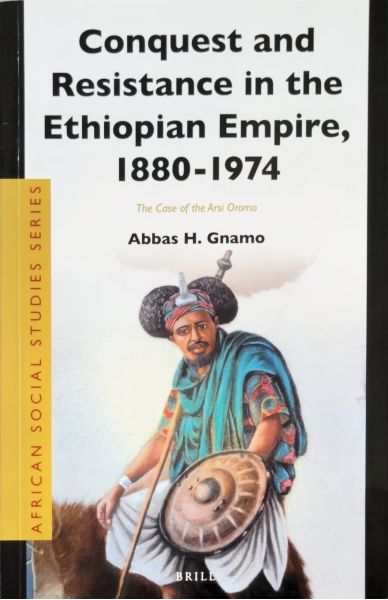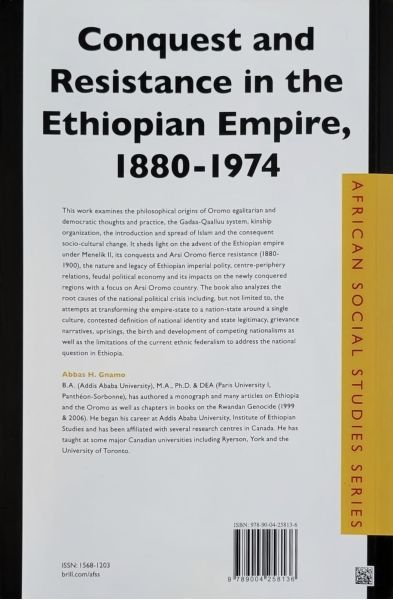Conquest and Resistance in the Ethiopian Empire, 1880 -1974: The Case of the Arsi Oromo (African Social Studies, 32)
This work examines the philosophical origins of Oromo egalitarian and democratic thoughts and practice, the Gadaa-Qaalluu system, kinship organization, the introduction and spread of Islam and the consequent socio-cultural change. It sheds light on the advent of the Ethiopian empire under Menelik II, its conquests and Arsi Oromo fierce resistance (1880-1900), the nature and legacy of Ethiopian imperial polity, centre-periphery relations, feudal political economy and its impacts on the newly conquered regions with a focus on Arsi Oromo country. The book also analyzes the root causes of the national political crisis including, but not limited to, the attempts at transforming the empire-state to a nation-state around a single culture, contested definition of national identity and state legitimacy, grievance narratives, uprisings, the birth and development of competing nationalisms as well as the limitations of the current ethnic federalism to address the national question in Ethiopia.
Abbas H. Gnamo, B.A (Addis Ababa University), M.A, Ph.D. & DEA (Paris University I, Panthéon-Sorbonne), has authored a monograph, and many articles on Ethiopia and the Oromo as well as chapters in books on the Rwandan Genocide (1999 & 2006). He began his career at Addis Ababa University, Institute of Ethiopian Studies and has been affiliated with several research centres in Canada. He has taught at some major Canadian universities including Ryerson, York and the University of Toronto
No reviews found







